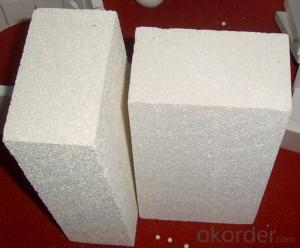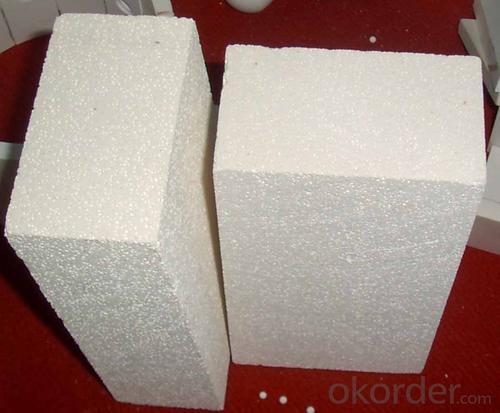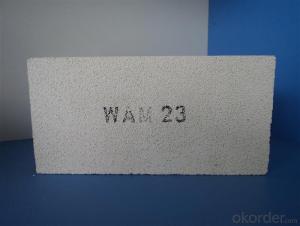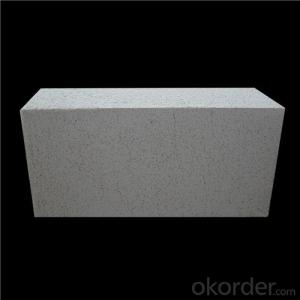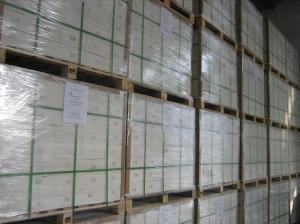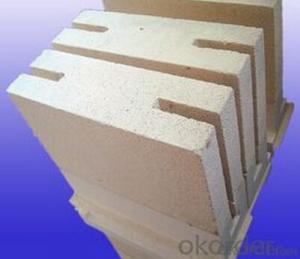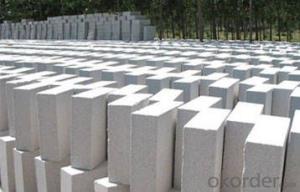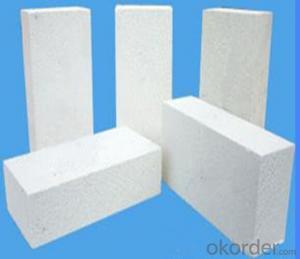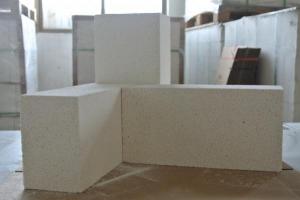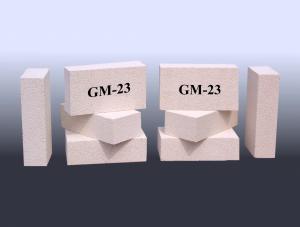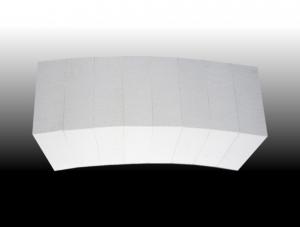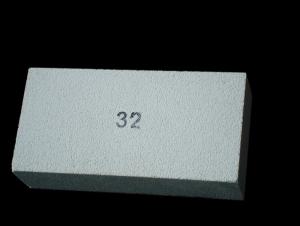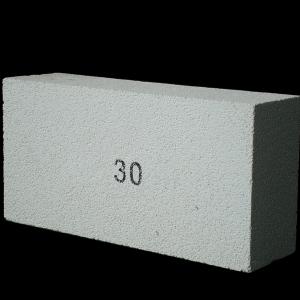Insulating Fire Brick - Refractory GJM Mullite Insulation Brick GJM-28
- Loading Port:
- Shanghai
- Payment Terms:
- TT OR LC
- Min Order Qty:
- 10 m.t.
- Supply Capability:
- 1000 m.t./month
OKorder Service Pledge
OKorder Financial Service
You Might Also Like
Specifications
mullite insulation brick
1. Low thermal conductivity
2.High hot compressive strength
3.Perfect Energy saving
Light weight mullite insulation furnace bricks refractory for sale
Advantage
1. Low thermal conductivity
2.High hot compressive strength
3.Perfect Energy saving
Description:
Lightweight mullite kiln bricks refractory for sale are made from good quality and superpure raw materials, with strictly classified fillings according to their grades. These fillings can form a uniform pore structure after burnt during the process of manufacture. Each grade of products has unique design to meet different thermal, physical and chomical demands.
Application:
Mullite insulation furnace bricks refractory material can be used in linings or heat-insulating materials of the industries, such as, ethylene pyrolysis furnaces, tubular furnaces, reforming furnaces of synthetic ammonia, gas generators and high-temperature shullte kilns, etc
Mullite Insulation furnace refractory material can be used as working lining, where contact with flames directly. This kind of brick can save the kiln energy very much
- Q: Can insulating fire bricks be used in the construction of crucible furnaces?
- Yes, insulating fire bricks can be used in the construction of crucible furnaces. These bricks are designed to withstand high temperatures and provide excellent insulation, making them ideal for lining the walls of crucible furnaces. They help to retain heat, reduce energy consumption, and ensure efficient melting and casting processes.
- Q: Can insulating fire bricks be used for insulation in ovens?
- Yes, insulating fire bricks can be used for insulation in ovens. These bricks are designed to withstand high temperatures and are highly effective in retaining heat, making them ideal for insulating ovens and other high-temperature applications.
- Q: Can insulating fire bricks be used for insulation in hot water tanks?
- Indeed, insulating fire bricks are suitable for insulating hot water tanks. Their superior thermal insulation properties deem them an optimal selection for such purpose. By utilizing these bricks, heat loss from the hot water tank can be efficiently prevented, consequently prolonging the water's temperature retention. Furthermore, these bricks exhibit exceptional durability and can endure high temperatures without fracturing or shattering, rendering them a dependable option for hot water tank insulation.
- Q: Are insulating fire bricks resistant to nitric acid?
- Yes, insulating fire bricks are generally resistant to nitric acid due to their high refractory properties and chemical stability.
- Q: Are insulating fire bricks fireproof?
- Yes, insulating fire bricks are fireproof. They are specifically designed to withstand high temperatures and provide excellent insulation against heat.
- Q: Are insulating fire bricks suitable for use in incinerators?
- Yes, insulating fire bricks are suitable for use in incinerators. Insulating fire bricks are specifically designed to withstand high temperatures and provide excellent insulation properties, making them ideal for use in incinerators. They have a high resistance to thermal shock and can retain their structural integrity even when exposed to extreme heat conditions. Additionally, insulating fire bricks have low thermal conductivity, which helps in reducing heat loss and improving the overall energy efficiency of the incinerator. Their ability to withstand high temperatures and provide effective insulation makes them a reliable choice for use in incinerators.
- Q: Are insulating fire bricks chemically resistant?
- Insulating fire bricks exhibit a wide resistance to numerous substances chemically. These bricks are typically composed of top-notch refractory materials, including alumina, silica, or a combination of the two. These materials possess exceptional chemical resistance, thereby endowing insulating fire bricks with formidable protection against the corrosive effects of diverse chemicals. Nevertheless, it is essential to acknowledge that the chemical resistance of insulating fire bricks may vary depending on their distinct composition and manufacturing techniques. While they generally withstand most chemicals, there exists a possibility of certain aggressive chemicals or extreme circumstances potentially causing the degradation or erosion of the bricks over time. To guarantee the utmost chemical resistance of insulating fire bricks, it is advised to consult the manufacturer's specifications or seek expert counsel pertaining to specific applications. Such measures will ensure that the bricks are suitable for the intended chemical environment and will consistently perform as desired throughout their expected lifespan.
- Q: How do insulating fire bricks affect the overall thermal efficiency of a building?
- Insulating fire bricks can have a significant impact on the overall thermal efficiency of a building. These bricks are designed to have low thermal conductivity, meaning they are effective in reducing heat transfer between different areas of a building. By using insulating fire bricks in the construction of walls, ceilings, and floors, the thermal energy generated within the building can be better retained and distributed. This results in reduced heat loss during colder months and decreased heat gain during warmer months, ultimately leading to improved energy efficiency. Furthermore, the insulation provided by these fire bricks helps to create a more comfortable indoor environment by minimizing temperature fluctuations and reducing the need for excessive heating or cooling. This can result in lower energy consumption and cost savings for the building's occupants. In addition to their thermal insulation properties, insulating fire bricks also have other advantages. They are lightweight, which makes them easier to handle and install. They are also highly durable and resistant to thermal shock, making them ideal for applications where high temperatures are involved, such as fireplaces or kilns. Overall, incorporating insulating fire bricks into the construction of a building can greatly enhance its thermal efficiency, leading to improved energy savings, reduced environmental impact, and increased comfort for its occupants.
- Q: Can insulating fire bricks be used in brick kilns?
- Yes, insulating fire bricks can be used in brick kilns. They are specifically designed to withstand high temperatures and provide excellent insulation, making them suitable for use in brick kilns where heat retention is crucial.
- Q: Are insulating fire bricks resistant to alkali-silica reaction?
- Yes, insulating fire bricks are generally resistant to alkali-silica reaction due to their low alkaline content and high silica content.
Send your message to us
Insulating Fire Brick - Refractory GJM Mullite Insulation Brick GJM-28
- Loading Port:
- Shanghai
- Payment Terms:
- TT OR LC
- Min Order Qty:
- 10 m.t.
- Supply Capability:
- 1000 m.t./month
OKorder Service Pledge
OKorder Financial Service
Similar products
Hot products
Hot Searches
Related keywords
